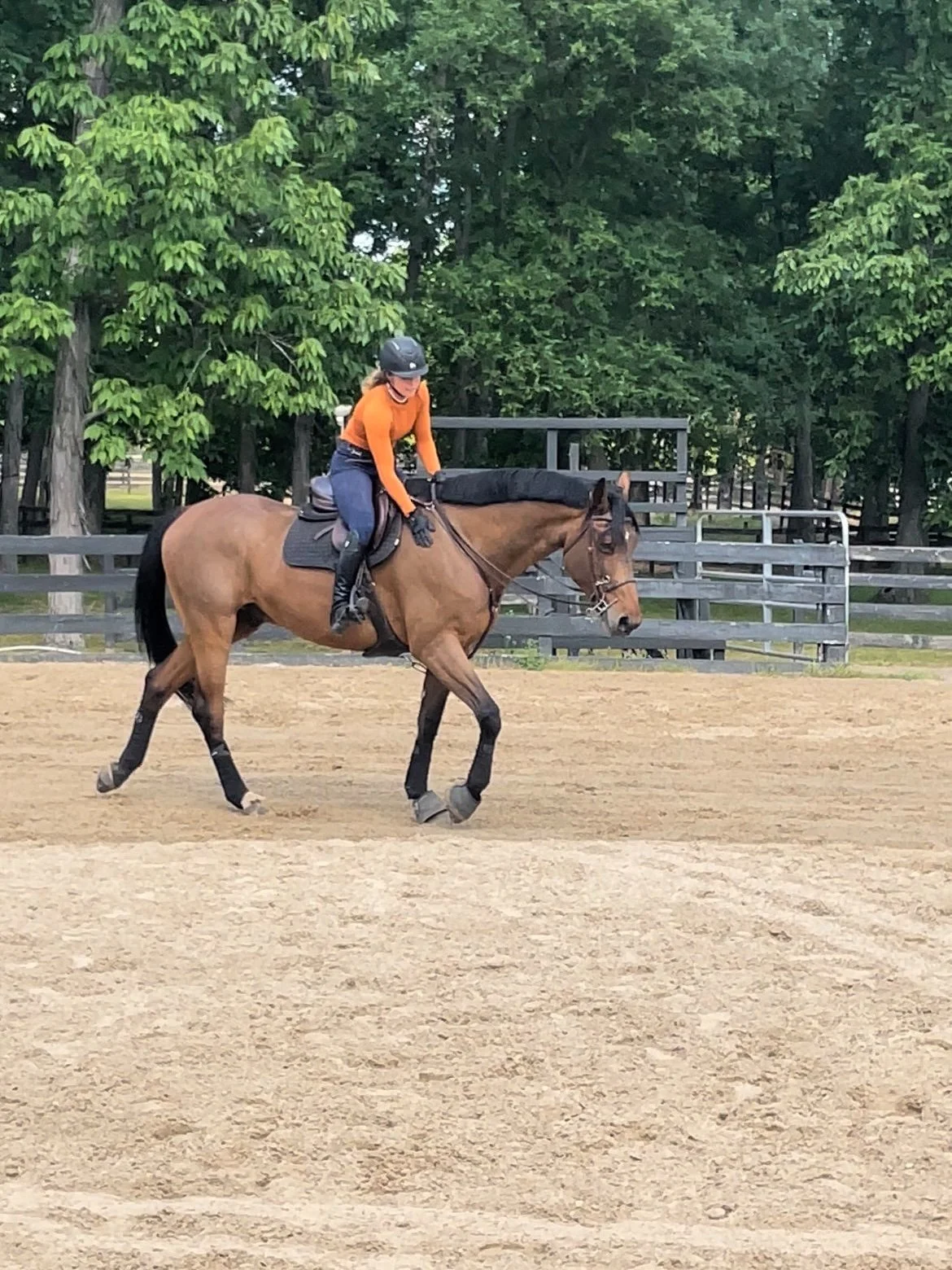Have higher standards.
I strongly believe that there is a striking need for the majority of riders to have higher standards for their horses. If I’m being honest, I’ve seen far too many people over the years nonchalantly allow their horses to put in minimal effort during their rides. The sad part is, oftentimes the rider doesn’t know that their horse is fooling them. The horse has set the standard, knowing that the rider won’t ask for more. There are a few main factors as to why this is happening, all of which we will explore. And all of which can be resolved without being a top-tier professional who has all of the resources and knowledge to guide them.
In my experience, the gap between amateur and professional, or student and trainer, exposes itself first and foremost in our expectations of ourselves. We are to blame, not our horses. I’d like to make something very clear, horses are excellent at finding our weaknesses. Not only do they know what we lack, but they will go accordingly to it. Meaning if we are fearful riders, they become insecure. If we’re lazy riders, they will be lazy in their efforts. If our standards are mediocre, they will be mediocre under saddle. The perfect saying we all know rings so true - the horse is a reflection of ourselves. We can learn a lot about our horsemanship by simply studying how our horses go for us.
So if we are what’s getting in our way, what’s the culprit? Obviously we all want what’s best for our horses, there are rare instances where that isn’t the case. But meaning well isn’t enough in and of itself. Just because we want what’s best doesn’t mean we can instantly follow through in our interactions with our horses on the ground and under saddle. We have to first know how to interact. We need more education.
A lack of knowledge will run us into trouble 10/10 times with horses. A recurring scenario I’ve noticed with students of all ages is this - every day their ride and their horse is a carbon copy of the previous ride. Meaning the horse and rider are stagnant, and there seem to be no real progressions happening. Whereas when I ride Parlay, every day of the week is structured. Every ride I incorporate a consistent and deliberate warm-up and a new gymnastics or fence exercise(s) that will challenge and develop him as a maturing jumper and me as the rider. Some days what I had planned out goes perfectly, other days I have to pivot mid-ride and focus my attention elsewhere. But because I am continually seeking further education, I have the knowledge to move forward and set a goal, a plan, and a standard for myself and my horse. Every single day.
Parlay getting a walk break mid-session.
If I were to casually go about riding my horse without putting any thought into what we were doing prior to the ride, chances are I wouldn’t have clear standards of what I expect from myself and from him. Because there is no structure, the goal of what I am doing and why becomes unclear and inconsistent, and before I know it I’m not really asking him of much.
Naturally, he begins to see where he can cut corners because he knows I’m not holding him to any standards. All of a sudden he begins to get lazy in listening to my aids, maybe my transitions become less smooth, he’s slow off my leg and seat, or maybe he’s more distracted. However he reverts will be subtle at first, but if I am not aware of what is happening, it’s subject to becoming worse.
As a rider, I hold myself to the standard of always asking first before telling my horse anything. Being soft before being firm. Giving him the opportunity to make mistakes, not putting him in a bind where he is forced to do the right thing and unable to mess up. I have to be the leader for him that he needs, every single day. If it’s cold and windy and he’s fresh, I might have to be more direct with him to show that I’m not scared just because he’s acting wild. Then I’m nonchalant about it, as if I could care less if he’s fresh that day. And I make sure that I always study and seek out further education and knowledge so that I can be better for my horse in everything that we do together. From how we warm up to how we navigate a course and everything in between.
In return, I expect him to be responsive and attentive to what I ask of him. He doesn’t have to be perfect, but he does have to try. As long as he is trying for me, I’m happy because I can work with effort. Without effort on his part, we can’t accomplish much good. I don’t expect him to always know what it is that I want. That would be unfair and unrealistic. But I do expect him to ask the question of what is it you’re asking, let me see if this is it. If he gets it wrong, I re-direct him and he tries again. It’s a team effort, and the standard for him is that he shows up as my teammate.
We owe it to our horses to have higher standards of ourselves and of them. Without this, there is no leadership, no direction, and no progress. Horses are always either getting better or worse, they aren’t machines! So no one day is the same as the next. It’s up to us to ensure they move in the right direction. In order to do that, we too need to be improving our craft as horsemen. If we do right by them, they are then able to do right by us.
